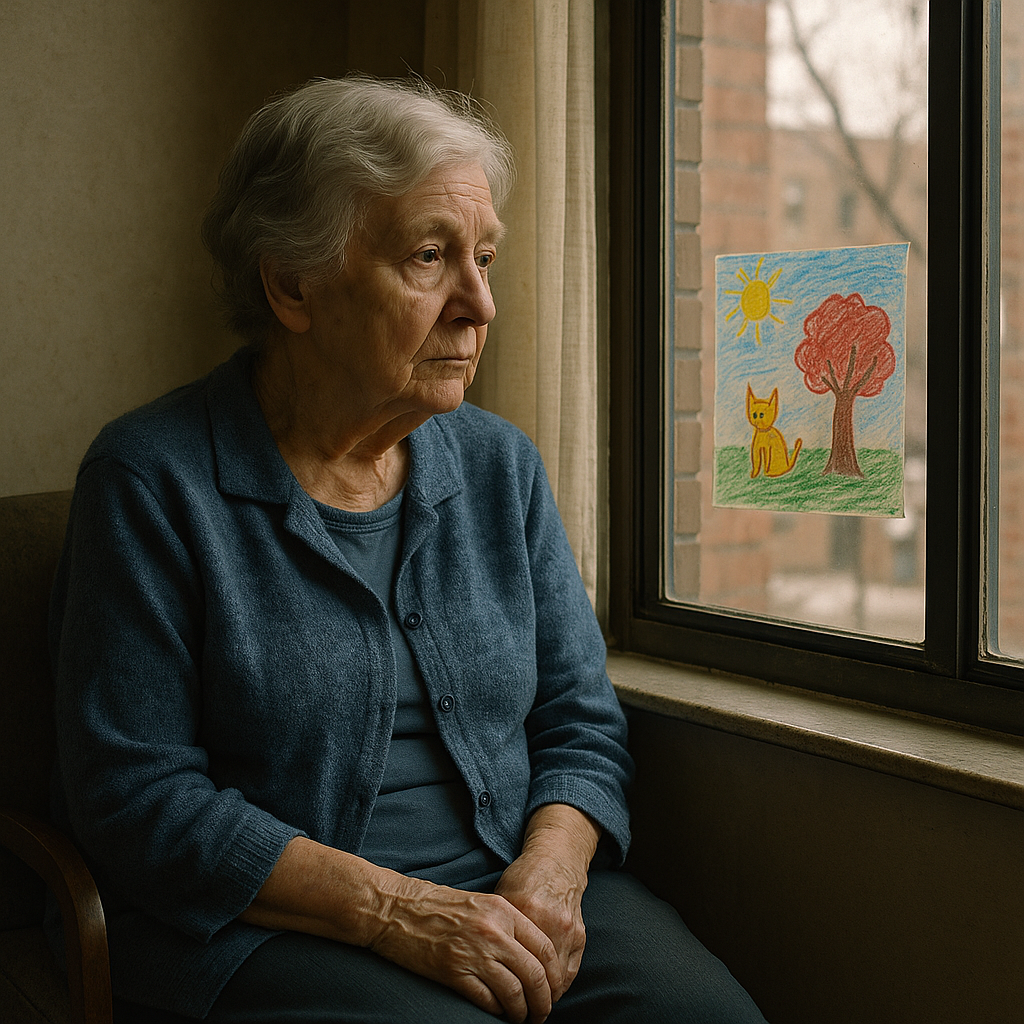Mrs. Latimer lived alone in apartment 6B, right across the hall from ours. The hallway always smelled like old wood and mothballs, and her door was the only one with lace curtains in the peep window. No one really saw her much, except for the occasional trip to the corner store with her cloth tote bag and a hunched back that made her look smaller than she probably was.
I was twelve when I first heard the noise.
It was late, close to midnight. I’d snuck out of bed to play on my old Game Boy under the blanket. Through the hum of the heating pipes and the occasional passing car, I heard a dull thud. Then another. Then a muffled yell—sharp, but not quite loud enough to understand. I paused the game and listened harder. The building creaked. Silence returned.
The next morning, Mrs. Latimer was outside her door with a broom, sweeping a hallway that was already clean. Her wrist had a bruise like spilled ink. I said hello. She smiled without teeth and nodded, eyes darting behind her, as if she were late for something.
Over the next few weeks, I noticed more. Sometimes shouting, sometimes the soft drag of something heavy against the floor. My mom told me not to pry. “Mind your own, Ezra,” she said, “We don’t know what’s going on in there.”
But I wanted to know.
One afternoon, I stayed behind while my mom went grocery shopping. I sat outside our door with my back against the cold wall, pretending to play with a toy car. When the door to 6B opened, I flinched. A man stepped out—tall, thick arms, wearing a security jacket and sunglasses though it was cloudy. He didn’t look at me. He locked the door and walked off, the key jangling loud in the silence.
I waited. Then I knocked.
At first, nothing. Then, a small voice. “Who is it?”
“It’s Ezra. I live across the hall.”
The lock clicked. The door opened just a crack. One blue eye peeked through.
“You shouldn’t knock,” she whispered. “It makes him angry.”
“Is he your husband?” I asked.
She shook her head. “He says he’s my son. But my son died in ’98.”
I didn’t understand then. But I nodded anyway.
“Do you want me to call someone?” I asked.
She looked behind her again. Then back at me. “Would you draw me a picture instead? I miss colors. He doesn’t let me have any.”
That night, I used every crayon I had. A blue sky. A red tree. A yellow cat that looked more like a potato. The next day, I slid it under her door.
The noises stopped after a while. One morning, the hallway was filled with men in navy jackets and radios on their hips. My mom said someone made a call. Said the man was gone. Arrested. “Abuse of a vulnerable adult,” she muttered, shaking her head. “Monstrous.”
Mrs. Latimer stayed a while longer. I’d see her sometimes sitting by the window of the rec room, my drawing taped beside her like a stained glass window.
When she left, she gave me a hug. “Thank you for the colors,” she said. “You reminded me what the sky used to look like.”
And even though I was just a kid, I understood what she meant. Because sometimes the world needs someone small to see what’s really going on—and not look away.

